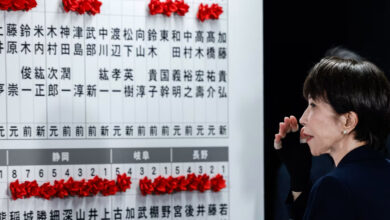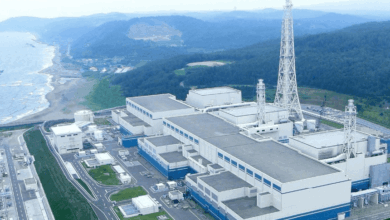Although the economic slump of past months has stalled most of Egypt’s industrial projects, the Japan International Cooperation Agency (JICA), undeterred by the volatile investor climate, is pursuing two solar projects here.
About a week ago, Japan revealed its plan to “offer” Egypt a new solar power plant in Borg al-Arab, west of Alexandria.
Occupying 7000 square meters of land and located in the E-Just Club and Mall compound in New Borg al-Arab city, this photovoltaic power station will supply the sport club, shopping mall and students’ dormitories with enough electricity to function.
“This is a grant aid project," explained Takahiro Goto, the JICA representative in charge of this plant, which is dubbed "Project for the Introduction of Clean Energy by Solar Electricity Generation System in Arab Republic of Egypt".
Goto reveals that Borg al-Arab’s new photovoltaic (PV) station will have a power generating capacity of 420 kilowatts and estimates that it will produce 641,000kw of power each year.
Japan will disburse the equivalent of US$11 million – 970 million yens – in public aid for the completion of this grid-connected photovoltaic plant, which is supposed to be fully operational in 2012.
While JICA is responsible for shipping the equipment and providing technical assistance, the Egyptians are dealing with the installation of an electric substation and medium voltage land-in cables of the water pipe and the site preparation.
Goto explains that the Borg al-Arab project obtained approval from the government prior to the revolution: “The application of this project was submitted by the Egyptians in April 2009, and the Grant Agreement took place in February 2010.”
He seems very confident that the project will continue with the next elected government “because there has been no change in governmental policy regarding the field of electric power.”
Masaki Kudo, who also works at JICA and is responsible for the solar hybrid plant in Kuraymat – located 100km south of Cairo – shares Goto’s confidence.
“The demand for electricity in Egypt is growing at the rapid pace of 10 percent per year, and the government seems keen on answering the people’s needs,” he says, adding that renewable energy has never been more present on the government political agenda.
Kudo added that JICA, mostly worried about a policy change related to electricity that could easily stop the project, has secured agreements with the government.
“The electricity cuts and shortages that have occurred frequently in the past few years have also fuelled the people’s frustration towards the government and is one of the many reasons leading to the revolution,” he said, emphasizing that the government is now taking the policies related to electricity very seriously.
Kuraymat is Egypt’s first hybrid station that combines solar and gas to generate electricity. “There is a solar heat generator that creates electricity, and a gas turbine that generates heat that will be reused to create electricity,” Kudo said.
This plant, which is operational but not yet to its full capacity, will eventually generate 140 megawatts of electricity – 80MW from the gas turbine, 20MW from solar and 40MW from the steam turbine.
“The plant costs $400 million: JICA’s share is $250 million, the Global Environment Facility (GEF) managed by the World Bank has granted $50 million through the GEF fund, while the remaining amount is paid by Egypt’s New & Renewable Energy Authority (NREA) in Egyptian pounds,” he explained.
The NREA is the project owner on the Egyptian side in charge of implementing the project according to the financiers’ guidelines related to bidding, tendering, transparency and selection process.
The 140MW electricity hybrid plant generates too little electricity to fulfill the country’s demand, but according to Mayada Magdy Ragheb, who is JICA's chief program officer, “providing electricity is not the sole objective of this project: this is also a great way of exposing Egyptian engineers to renewable energy technologies and train them, as well as encourage the Egyptian government to invest in alternative sources for generating electricity.” According to her, this hybrid plant is an invitation for replication, and will prompt Egyptian companies to start producing some of the equipment these plants require.
Some may wonder how the Japanese Foreign Ministry is still capable and willing to disburse so much money to establish costly projects abroad only four months after the destruction of the Fukushima Daiichi nuclear plant.
“The Japanese policy regarding nuclear energy has not changed so far, plus the Borg al-Arab project is unrelated because the deal with the Egyptian government happened long before the accident,” Goto said.
Kudo, who agrees with the fact that Japanese policy regarding nuclear energy has not been modified yet, said internal discussions are ongoing. He also said Japan’s active participation in developing renewable energy sources locally and abroad is not merely an image campaign in the wake of Japan's crisis, but represents a real commitment to developing solar power.




